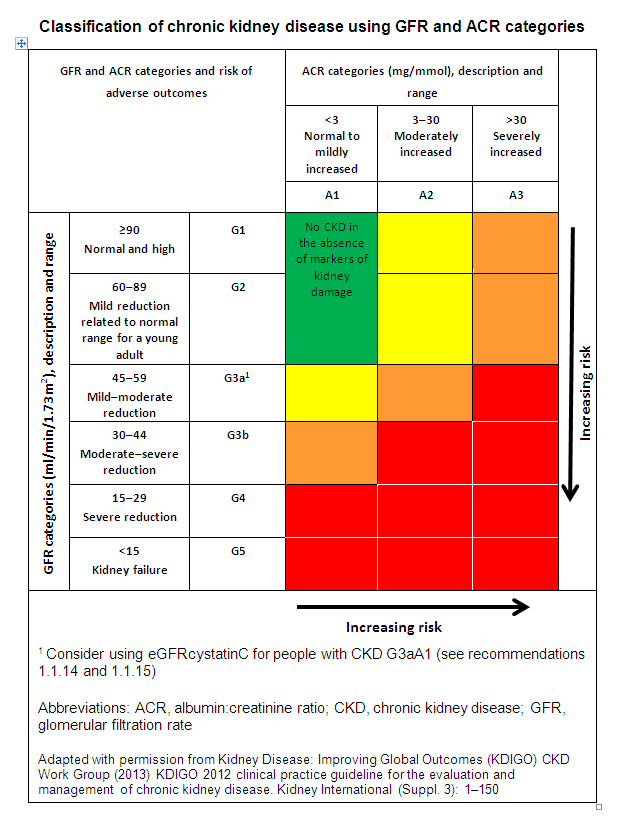What is a normal urinary ACR level?

A ‘normal’ uACR level is lower than 3 mg/mmol.
uACR stands for the urinary albumin-creatinine ratio. Albumin is a protein, and this number reflects the amount of protein in the urine. All humans have a little protein in the urine. But if it goes up, its is a sign of strain on the kidneys, and sometimes chronic kidney disease (CKD).
So, for this test, a lower number is better. A uACR level of 3 mg/mmol or higher is called ‘microalbuminuria’ (small amounts of albumin in the urine). It can be a sign that you will get higher levels of albuminuria later in the course of a kidney disease.
What is uACR?
Albumin is one of the major proteins in the blood and is too large to be filtered by the kidneys.
So healthy kidneys keep the albumin in your blood, whilst filtering the creatinine out into the urine. So, there should be very little or no albumin in your urine.
The urinary albumin-creatinine ratio (uACR) test measures the amount of two different substances in your urine – albumin (a protein) and creatinine (a waste substance).
The uACR is calculated by dividing the amount of urine albumin by the amount of urine creatinine to find the ratio.
Why is uACR measured?
It is done as albumin in the urine is a sign of kidney damage in CKD, especially when it is due to disease of the glomeruli (1 million filtering units per kidney), which are in the outer area (cortex) of the kidney.

In fact, urinary ACR is one of the three key investigations in a patient with suspected CKD. The other two are: (1) blood creatinine level (and the estimated GFR (eGFR) that is calculated from it); and, (2) renal (kidney) ultrasound.
It is also used to monitor patients with diabetes, as it can be an early sign that they will develop CKD at a later date.
Categories (levels) of albuminuria/uACR
There are three levels that carry these names:
- A1 = <3 mg/mmol. Normal, as it is normal to have a very small amount of albumin (and protein) in the urine
- A2 = 3-30. Mild albuminuria
- A3 = >30. Moderate-to-severe albuminuria.
In nephrotic syndrome, uACR is usually >220 mg/mmol. In other words, in nephrotic syndrome there are very high levels of albuminuria. >100 mg/mmol/L is often called ‘nephrotic range’, i.e. on the way to nephrotic syndrome.
“Heavy proteinuria is the hallmark of glomerular disease.”
Urinary ACR and GFR/CKD
Urinary ACR is combined with the CKD stage (Grade or ‘G’ 1-5) to estimate the outlook for someone with CKD. In other words, CKD can be described in one patient as ‘CKD G4 A3’, and that has a worse outlook than for a patient with ‘CKD G2 A1’. So a higher level of albuminuria worsens the outlook as does a lower GFR.

Summary
We have described what is a normal urinary albumin-creatinine ratio (uACR) – less than 3 mg/mmol. We hope it has been helpful.

